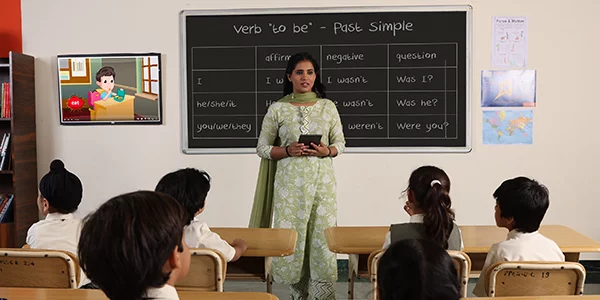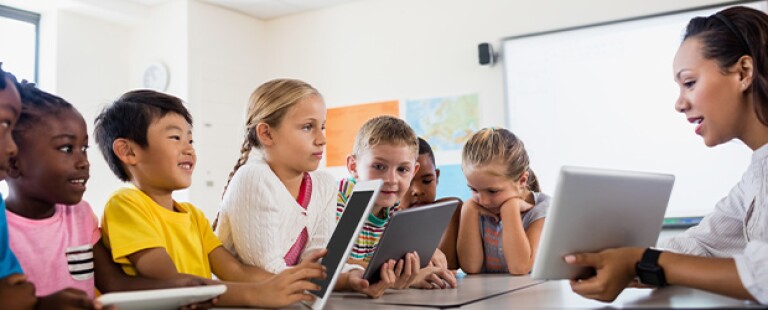Exploring the Various Training Methods in Key Science Education Today
Inquiry-based learning, hands-on experiments, and the integration of innovation are redefining just how educators involve young minds. In addition, joint approaches and distinguished direction are being utilized to cater to the diverse needs of trainees, improving both interaction and understanding.
Inquiry-Based Discovering
Inquiry-Based Discovering (IBL) is a pedagogical technique that urges trainees to check out scientific concepts with doubting, investigation, and hands-on testing. This method emphasizes the role of students as energetic individuals in their discovering, promoting critical thinking and analytic skills. By engaging with real-world questions, trainees become curious and inspired, which improves their understanding of scientific concepts.
In IBL, instructors serve as facilitators, leading pupils as they browse their inquiries instead than providing information directly. This student-centered strategy permits differentiation, suiting different learning speeds and designs. Students develop abilities in developing theories, creating experiments, and evaluating information, which are critical for scientific proficiency.
Furthermore, IBL cultivates collaboration amongst students, motivating them to share ideas and findings. This cumulative query advertises social skills and a feeling of neighborhood within the class. In addition, the procedure of inquiry urges durability, as students learn to embrace failing as a tipping stone toward understanding.
Hands-On Experiments
Hands-on experiments are an important component of reliable scientific research education, matching the concepts of inquiry-based discovering. These experiments allow pupils to involve directly with scientific principles, promoting a deeper understanding with experiential knowing. By manipulating products and observing outcomes, young students can grasp abstract concepts in substantial methods.
Such tasks advertise vital reasoning and analytic abilities, as students hypothesize results, conduct experiments, and analyze results. This process motivates them to ask inquiries, improve their understanding, and establish a scientific mindset. Furthermore, hands-on experiments can be tailored to varied knowing styles, ensuring that all pupils have the possibility to engage meaningfully with the material.
Moreover, hands-on experiments frequently encourage collaboration amongst peers, promoting synergy and interaction abilities. Functioning in teams makes it possible for students to share ideas, discuss findings, and gain from each other, which boosts their general academic experience.
Incorporating hands-on experiments into the key scientific research educational program not only enriches the finding out setting yet additionally cultivates a lifelong interest in scientific research. By proactively taking part in their education and learning, trainees are more probable to establish an enthusiasm for scientific inquiry that prolongs past the class.

Modern Technology Integration
Incorporating technology right into key science education has actually come to be increasingly necessary in fostering trainee engagement and enhancing discovering results. Making use of electronic devices, such as interactive simulations, online laboratories, and academic software application, supplies trainees with chances to check out scientific concepts in innovative means. These sources promote a much deeper understanding of intricate subjects by permitting students to picture and adjust variables that would certainly be not practical in a typical classroom setup.
Moreover, technology combination motivates individualized learning experiences. Trainees can proceed at their own rate, revisiting challenging ideas via multimedia sources, which provide to different discovering designs. This flexibility not only supports specific development but likewise grows a feeling of freedom in learners.
Additionally, technology works as a bridge to real-world scientific research, attaching pupils with existing study and professional contributions. Access to scientific journals and online data sources broadens trainees' point of views on clinical query and cultivates critical assuming skills.
Collaborative Understanding
Collective learning plays an essential function in key scientific research education by cultivating teamwork and interaction here are the findings skills amongst students. This strategy motivates students to collaborate, share understanding, and participate in analytic, which improves their understanding of clinical ideas. By joining team tasks, trainees find out to verbalize their ideas, listen to varied viewpoints, and negotiate solutions, every one of which are essential abilities in both academic and real-world contexts.

Research suggests that collective knowing can lead to raised inspiration and interaction in scientific research subjects, as students discover satisfaction in common experiences (primary science tuition Singapore). In addition, this strategy prepares trainees for future collaborative ventures, equipping them with the skills essential for reliable synergy in college and professional atmospheres. Ultimately, accepting collaborative discovering in key scientific research education and learning can substantially enhance the learning experience and advertise a much deeper understanding wikipedia reference of scientific questions
Distinguished Direction

Differentiated instruction can manifest in numerous methods, such as differing the material, procedures, or products of understanding. For instance, instructors may make use of tiered projects that supply varying levels of intricacy, permitting trainees to function at their respective preparedness degrees. In addition, flexible organizing strategies can promote collaboration among trainees with various capacities, cultivating peer understanding.
Evaluation plays a crucial function in this technique, as it notifies guideline and aids teachers comprehend each pupil's one-of-a-kind demands. Developmental analyses, such as quizzes and observations, can direct teachers in adjusting their approaches to boost finding out end results. primary science tuition Singapore. Inevitably, by applying differentiated instruction in primary science education and learning, teachers can cultivate a much more efficient and equitable learning environment, encouraging all pupils to reach their complete capacity in comprehending scientific sensations
Verdict
In recap, the diverse teaching approaches in key scientific research education and learning, including inquiry-based knowing, hands-on experiments, technology integration, joint discovering, and set apart direction, jointly add to a much more reliable learning atmosphere. These methods promote vital reasoning, analytic skills, and a much deeper understanding of scientific ideas. By implementing these methods, educators can produce encouraging and appealing classrooms that More Bonuses resolve the diverse needs of pupils, inevitably promoting a long-lasting rate of interest in science and improving scholastic accomplishment.
Inquiry-Based Learning (IBL) is an instructional approach that motivates students to check out clinical concepts via doubting, examination, and hands-on testing.Joint understanding plays an important duty in primary scientific research education and learning by promoting team effort and interaction skills amongst pupils.Research study shows that collaborative discovering can lead to raised motivation and interaction in scientific research topics, as students discover satisfaction in common experiences.In fostering an inclusive discovering setting, distinguished guideline arises as a key technique to fit the varied demands and abilities of trainees in main scientific research education and learning. Inevitably, by executing set apart guideline in primary science education and learning, educators can cultivate a much more effective and equitable discovering setting, encouraging all students to reach their full capacity in recognizing scientific phenomena.
Comments on “Find the Best Primary Science Tuition Singapore for Enhanced Learning”